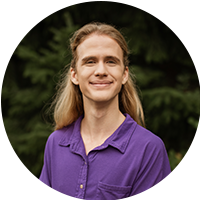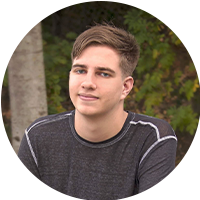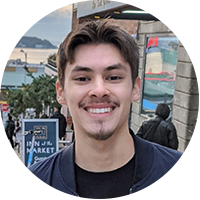Principal Staff
Dene Grigar is Founder and Director of the Electronic Literature Lab.
She
also serves as the Director of the Creative Media
& Digital Technology Program at Washington State University Vancouver,
with research focusing on the creation, curation, preservation, and criticism of
Electronic Literature, specifically
building multimedial environments and experiences. She has authored or co-authored 17
media works, such as Curlew (with Greg Philbrook, 2014), “A
Villager’s
Tale” (with Brett Oppegaard, 2011), the “24-Hour Micro-Elit
Project” (2009), as well as four print books, six multimedia books, and over 71
articles. She curates exhibits of electronic literature and media art, mounting shows
at the Bibliotecha Hertziana—Max Planck Institute of Art History. Library of
Congress, British Computer Society, and for the Modern Language Association, among
other venues. She serves as Associate Editor for Leonardo Reviews. For the
Electronic Literature Organization she served as President from 2013-2019 and
currently as its Managing Director and Curator of The NEXT. In 2024 she was honored
with the Marjorie C. Luesebink Career Achievement Award by the Electronic Literature
Organization. Her website is located at
http://nouspace.net/dene.
Holly Slocum is Project Manager and Senior Designer in the Electronic
Literature Lab. She completed her B.A. in Digital Technology and Culture and
specializes in user experience design, front-end web development, and digital
preservation. Her work includes the reconstitution of several pieces of electronic
literature, including Bill Bly's We Descend: Complete Edition, Richard
Holeton's Figurski at Findhorn on Acid, Amnesia: Restored, and
Deena
Larsen's 17 hypertext kanji-ku poems. She also designed and manages the
development of The NEXT, a multimedia
museum and archive space owned by Electronic Literature Organization (ELO). Holly
also serves as the Coordinator for ELO and designer for The Digital Review.
Greg Philbrook graduated from the Creative Media & Digital Culture
Program and now works as the DTC department’s classroom and instructional
support technician. As a developer, he headed the creation of Electronic Literature
Organization’s (ELO) The
NEXT and has produced the catalog for the Electronic Literature Lab (ELL).
He participates in the preservation projects in ELL and has collaborated with media
artists, Dene Grigar on “Curlew,” and John Barber on “Sound
Spheres.” He
has also served as the technical support at exhibitions curated by Grigar at the
Library of
Congress, ELO, Modern Language Association, and Digital Humanities Summer Institute.
Andrew Thompson is the lead WebXR developer for The NEXT's Visualizations
Space, as well as former lead developer for "The Future of Text in XR", a project
funded by the Alfred P. Sloan Foundation. He also serves as a born-digital
preservationist, working on emulating Flash works and restoring and reconstructing
born-digital works of art, literature, and games. He was the Project Manager for
Amnesia: Restored, as well as a core developer on many other
reconstructions, including David Kolb's Caged Texts, Stuart Moulthrop's
Victory Garden, and John McDaid's Uncle Buddy's Phantom Funhouse.
He also programmed the adaptation of Rob Swigart's game, Portal (Activision 1986) to
the VR environment, a project called DATA ENTRY: PORTAL. Additionally, he
works as a game developer using Unreal Engine 5 and Unity and serves on the Executive
Team as a founder of CMDC Studios. Thompson holds a B.A. and a certificate in Video
Game Studies & Design from Creative Media & Digital Culture in the Department of
Digital Technology & Culture at Washington State University Vancouver.
Affiliated Scholars

John Barber, PhD, is a digital artist and scholar based whose work is
predominantly focused on sound art,
experimental live radio performances, and podcasts. Barber’s sound art has been
featured in many
international festivals and exhibitions. for example, Sounds of My Life was
featured at Lisbon’s annual RadiaLx International Festival of Radio Art,
Between Sleep and Dreams was included in events across Canada, Estonia, and
Portugal, and Remembering the Dead was exhibited at the Paul Watson
Gallery in Winona,
MN and re-interpreted as Remembering the Dead: Northern Ireland,
which was published in New Binary Press. Barber’s work has also
been included in
the Audiograft International Festival of Experimental Music and Sound hosted by
Oxford
Brookes University
and Brazil’s Festival Internacional de Linguage Eletronica. As a scholar of
media
art and digital
storytelling, Barber has been published in a range of journals and academic volumes,
including Digital Humanities Quarterly, The Mobile
Story, and Transdisciplinary Digital
Art.

Richard Snyder holds a PhD in English from Washington State
University. His
research
focuses on intersections of word and image in literary media. As part of his
dissertation
research, he is
currently developing the Early Modern Visual Reader (EMVR), a digital platform that
remediates the
experience of reading early modern literature within its own visual culture. Richard
is
Assistant Professor
at Northwest College.

Alexandra L. Martin is a curator of digital arts, coordinator of the 1P1 Lab, and a doctoral candidate in literary studies at the Université du Québec à Montréal (UQAM). Her forthcoming dissertation (2026) is entitled Memory and Obsolescence: Encountering the Past in Digital Art. Her research focuses on obsolescence, vintage tech, and contemporary Web practices. From 2023 to 2024, she was coordinator of the Multimodal Media Literacy group (LMM), and from 2020-2023 assistant coordinator of the Canada Research Chair in Digital Arts and Literatures (ALN|NT2), both at UQAM. Previous exhibitions hosted by The NEXT include: art intelligent (2024), exPhrasis (2022), Trans[creation] (2021), S'éclipser | Faces of resilience (2020).

Mariusz Pisarski, PhD, is author of “Xanadu. Hypertextual
metamorphosis of
fiction” (Kraków, 2013). He has presented digital literacy projects at contemporary
art
spaces
in
Paris, Warsaw, Bratislava, Kosice and Vancouver and has translated American digital
literature.
He
also serves as the chief editor of Techsty, a journal on new media and literature,
and as
creative
director for multimedia in Korporacja Ha!art from Cracow.

Erika Fülöp is a Professor in 21st Century Literature, Digital
Humanities,
and Creative Writing at the University of Toulouse who explores recent and diverse
modes
of
writing and authorship that question and expand the concept of writing and
literature,
including
interferences between print books and networked writing, the impact of social
networks on
authorship, video writing on YouTube, and digital poetry and its translation. She has
directed
several projects and conferences around these subjects, including Screening the
Literary
(2016-17)
and The Creative Web of Languages (2017-19). In 2020 she completed a monograph
co-authored
with
Gilles Bonnet and Gaëlle Théval on French creative literary experimentation on
YouTube
(‘Qu'est-ce
aue la LittéraTube?'), and in 2021, adventured into learning to code & co. thanks
to
an
EPSRC
grant in order to carry out truly interdisciplinary research and analyses of
electronic
literature.

Agnieszka Przybyszewska,
PhD,
is Assistant Professor at the University of Łódź in Poland and Visiting Research
Fellow
(2020-2022)
at Bath Spa University, where she is conducting research on electronic literature as
part
of
the
Bekker Programme of Polish National Agency For Academic Exchange. Her research is
focused
on
modern
evolution in the concept of the book, the act of reading and literature itself, and
includes
diverse
forms of textual materialism and electronic literature. Recently she focuses mostly
on
haptic
and
corporeal aspects of reading. Agnieszka is an author of an extensive monograph on
liberature
and
liberacy (“Liberackość dzieła literackiego”, 2015), as well as of several dozens
articles
on
emerging forms of storytelling and literary publications in peer-reviewed journals
and
collective
academic publications (in Polish, English and Spanish). She is a member of Electronic
Literature
Organization and Polish Centre of Research on Electronic Literature, editor of The Writing Platform. She teaches
academic
courses on
modern unconventional and innovative forms of print and digital literature and she
was a
co-author
of a programme of Creative Writing studies at the University of Łódź. She is
currently
focused
on
writing a monograph on Kate Pullinger's digital writing (within NAWA project “From
multimodal
interactive narrative to small screen fiction and haptic, corporeal reading: Kate
Pullinger and
innovation in digital writing”) and she is a lead of a project of the author’s
digital
works
archive (within IDUB project “Between (re)construction and emulation. Archiving and
popularisation
of electronic literature – Kate Pullinger's Archive”).

Deena Larsen is an American new media and hypertext fiction author
involved in the creative electronic writing community since the 1980s. Her work has
been published in online journals such as the Iowa Review Web, Cauldron and Net,
frAme, inFLECT, and Blue Moon Review.
Post-Bacc Researchers

Ruth Woodcock is a graduate of the DTC Department and currently serves
as a Metadata & Content Developer for The
NEXT. With a background in HTML5, CSS3, and JavaScript as well as front end
design software like Adobe, she assisted with the reconstruction of David Kolb's
Caged Texts and was the developer of the archival website for N. Katherine Hayles, a
project begun in September 2021.

James Lesperance is a graduate the DTC Department specializing in
programming and games. He served as a docent at the Hypertext & Art exhibition that
took place in September 2023 in Rome, Italy. He was the recipient of the
Undergraduate Research Fellow Award given out by Washington State University
Vancouver.

Evan Leyden is a graduate of the DTC Department specializing in 2D
animation, motion graphics, and multimedia design. They were a part of the team that
reconstructed Deena Larsen's "Stone Moons" and has worked as the illustrator book
Larsen's book "Self Care World Care". They also worked as the
animator on the Phonic Bloom AR project for the Woodland Community Library.

Andrew Truax is a graduate of the DTC Department specializing in 3D
modeling. He was the lead modeler on the Phonic Bloom AR project for the Woodland
Community Library. He also worked on the 3D web and VR visualiations of physical
artifacts in The NEXT.

Rylan Eisenhauer is a graduate of the DTC Department specializing in
video editing and production. He serves as the Social Media Specialist for
Re-Imagined Radio and the Future of Text. He also has been managing a YouTube channel
"Bunkatron" with a team of eight, which focuses on gaming and comedy content.
Previous CMDC Undergraduate Researchers
Sierra O'Neal (2021-2024), Sydney Nguyen (2023-2024), Ben Peterson (2024), Kathleen Zoller
(2018-2023), Ariel Wallace (2021-2023), Ahria Nicholas (2021-2023), Austin
Gohl (2022), Mariah Gwin (2017-2020), Andrew Nevue (2018-2020), Moneca Roath
(2018-2020),
Austin Fields (2018-2019), Katie Bowen (2017-2018), Vanessa Rhodes (2017-2018), Veronica
Whitney (2017-2018), Madeleine Brookman (2015-2016), Amalia Vacca (2013-2015), and Seti
Alizedeh (2012-2013)
Undergraduate Docents for Exhibits for Electronic
Literature
Exhibits
Setareh Alizadeh, Keeley Bitton, Madeleine Brookman, Nicole Buckner, Eli Campbell, Melissa
Carroll, Hunter Crawford, Serena Devera-Taualo, Neita Faris, Evan Flanagan, Natalie
Hendren,
Morgan Hutchinson, Jason Lee, Kerri Lingo, Alan McGinnis, Gary Nasca, Kate Palermini, Greg
Philbrook, Margarete Strawn, Nic Stevens, Amalia Vacca, Haley Zach

















